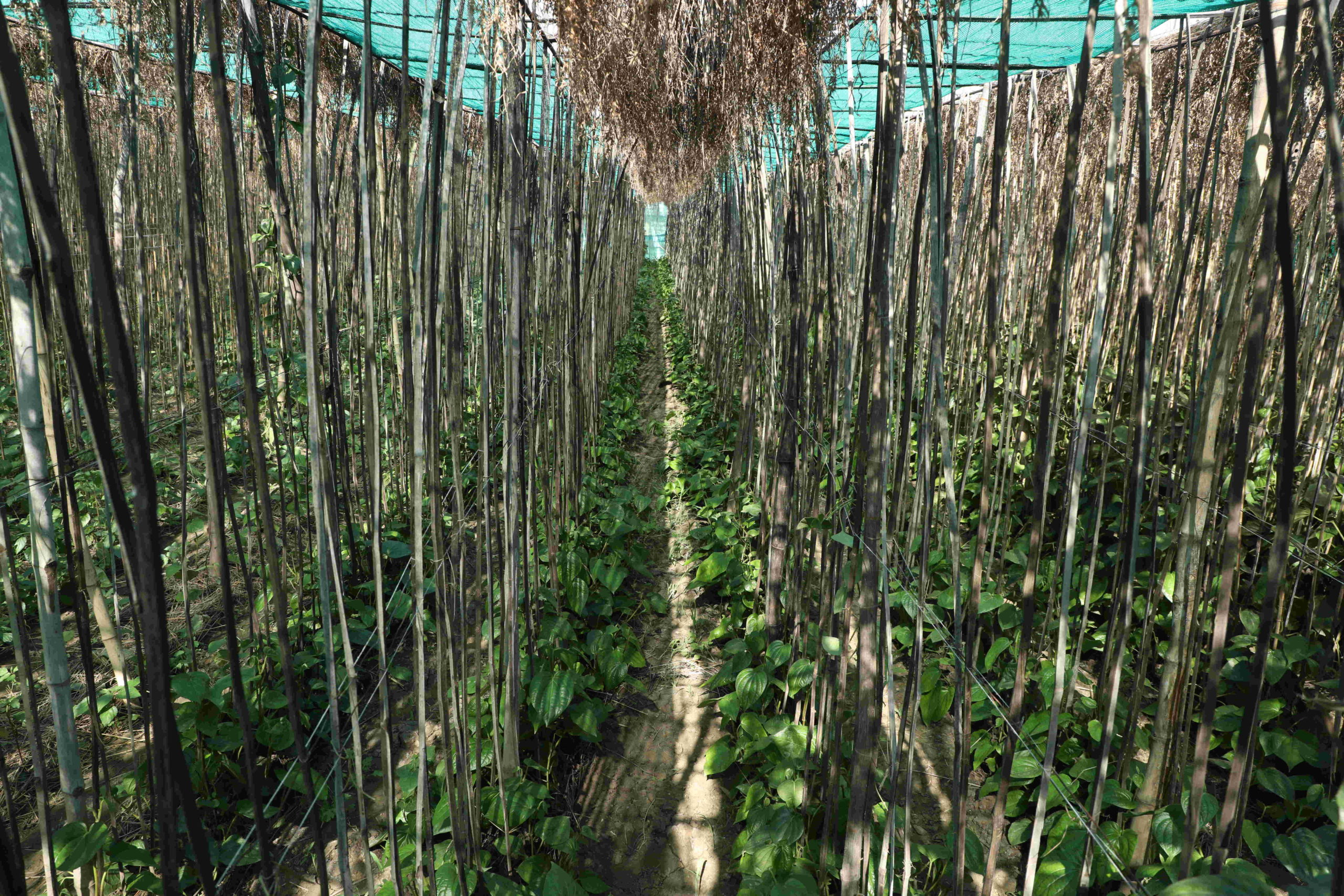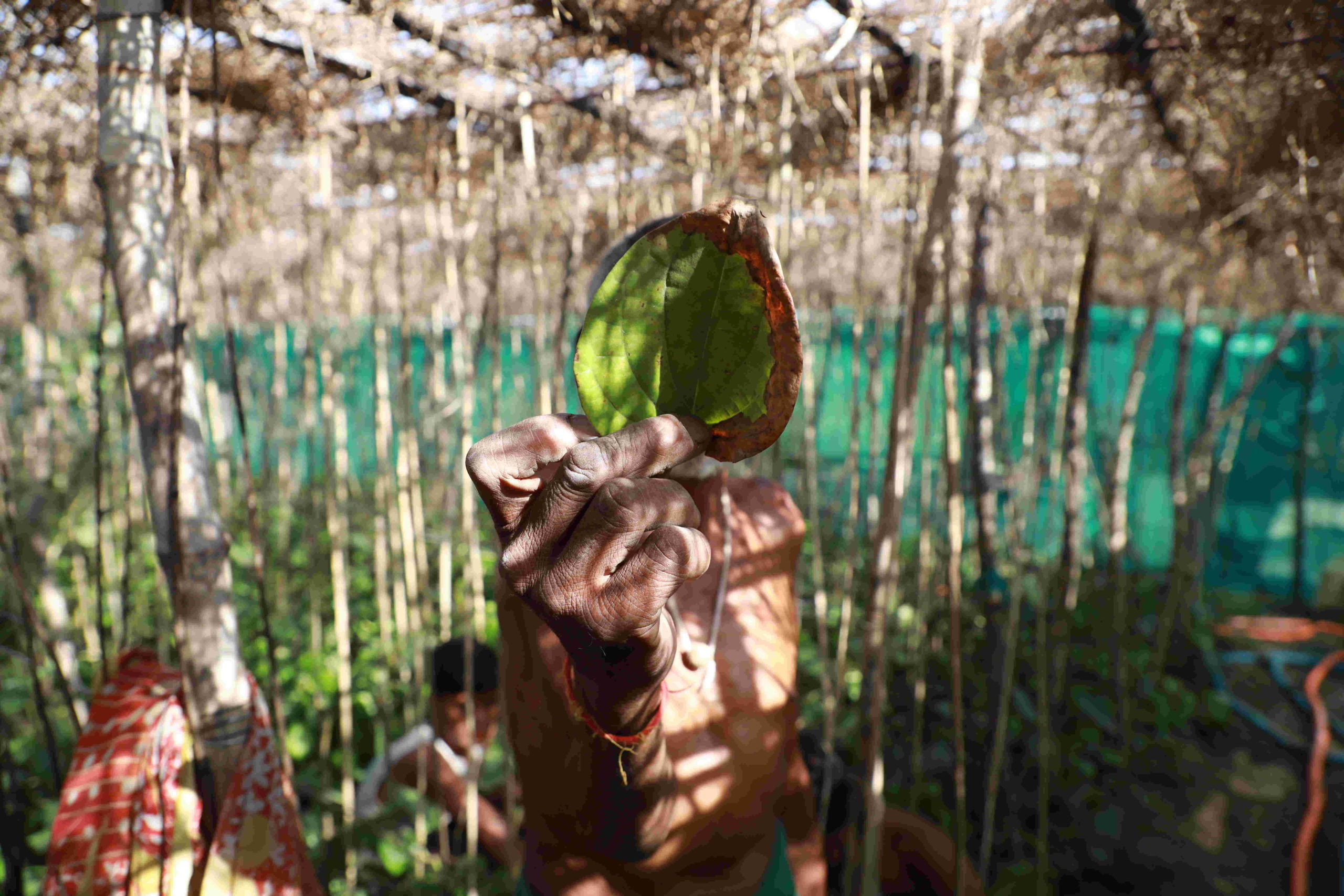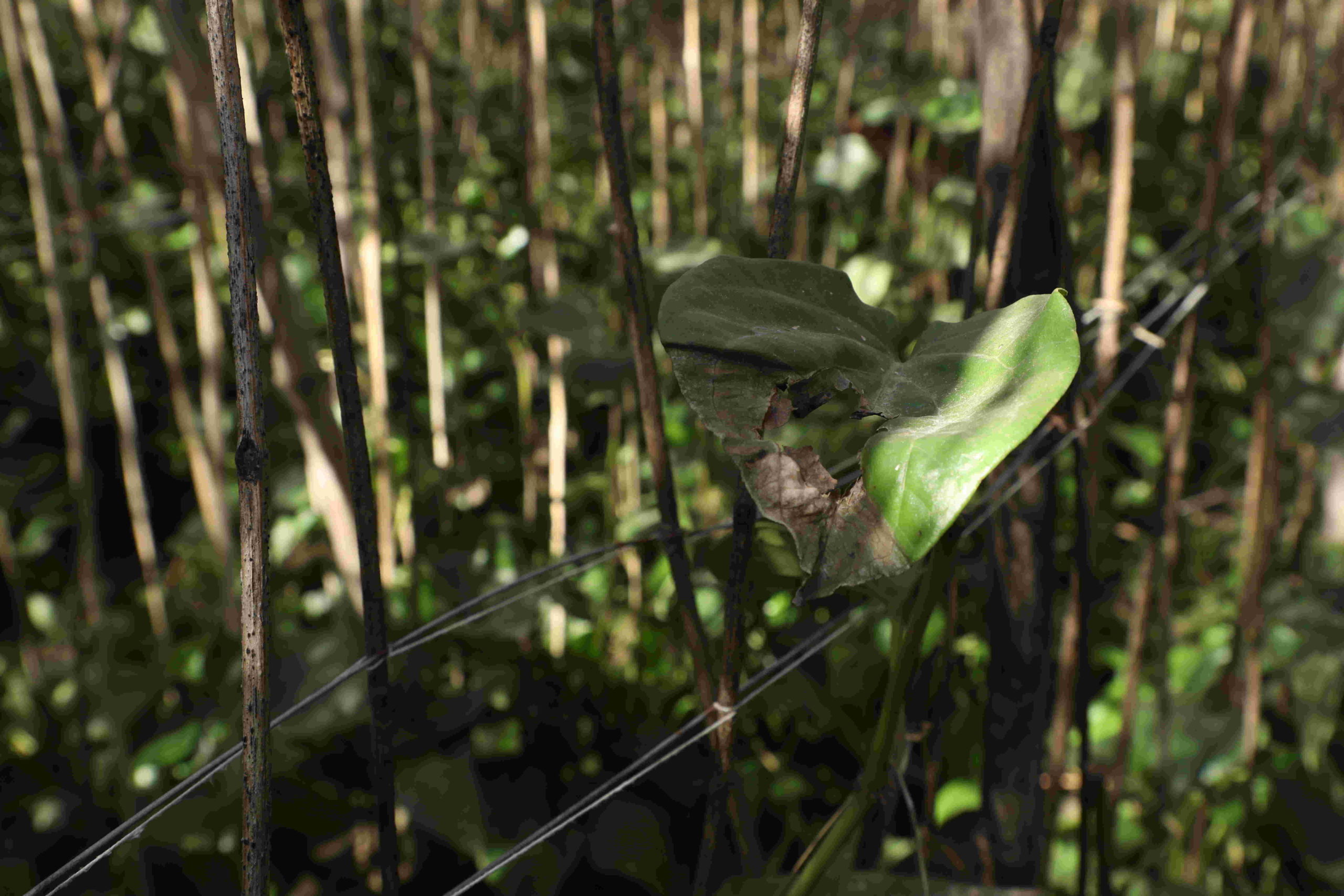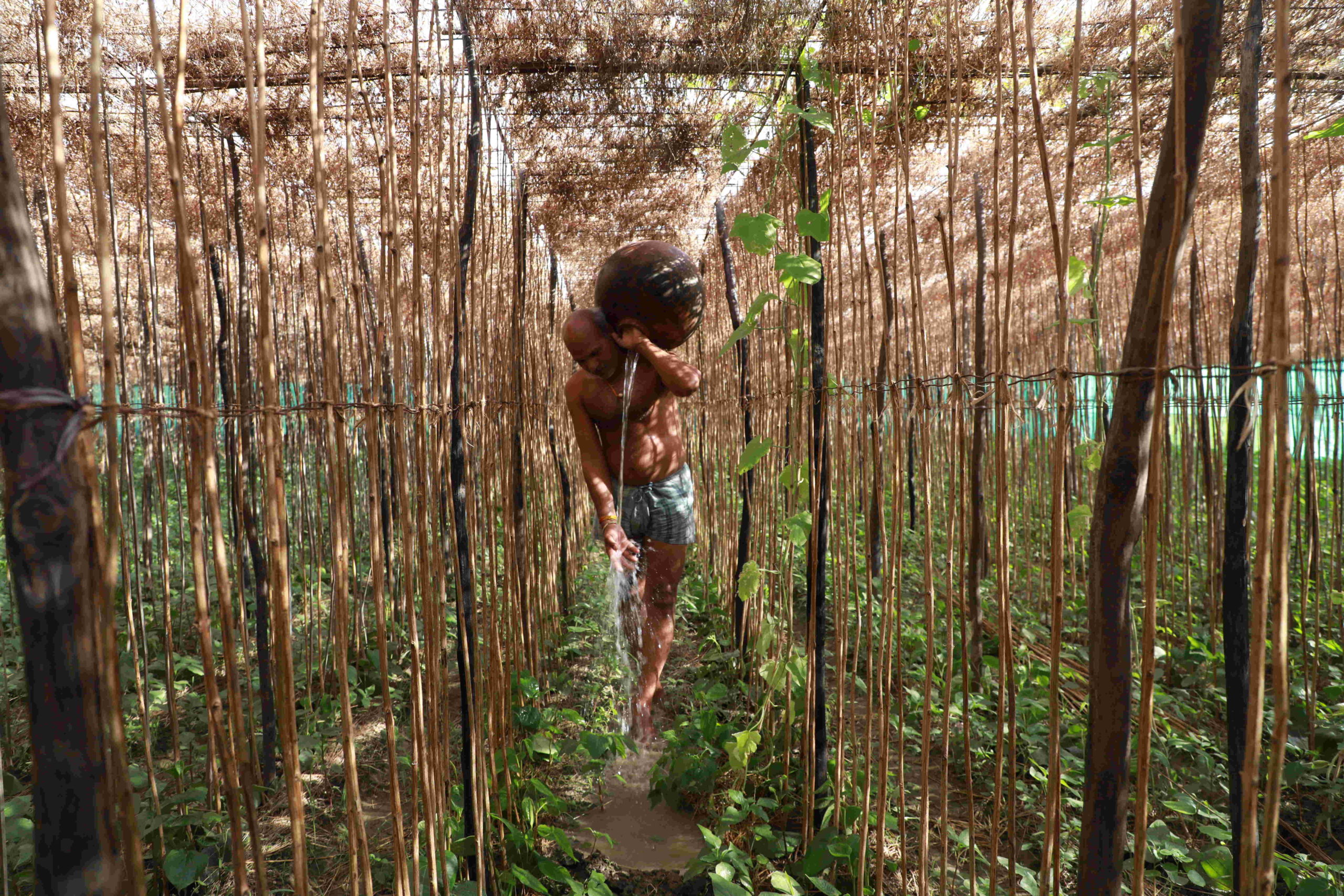Betel leaf farmers of UP’s Bundelkhand have stories of loss during the lockdown to share
The loss of betel farmers incurred during the lockdown did not come to anyone's attention. Here’s a story of paan farmers of Pali village in Bundelkhand, what they have been going through.

Arvind Singh Parmar and Arvind Shukla
Lalitpur (Uttar Pradesh)
The nationwide lockdown in view of the COVID-19 pandemic affected almost every citizen some way or the other, and some more than the other. Many stories reached us, many went unnoticed. Gaon Connection brought to you many unnoticed stories – how the lockdown affected prospective adoptive parents waiting to take their daughters back home, women in Gonda villages employing migrant workers who returned from cities and many more.
How the lockdown hit farmers cultivating crops other than vegetables and fruits is something we seldom talk about and know of. The betel leaf farmers, who suffered major losses, in lakhs, are one such group we don’t talk about.
The paan from Uttar Pradesh’s (UP) Mahoba and Pali in Bundelkhand is famous across the country. Pali in Lalitpur district has more than 500 barejas (paan plantations), and according to farmers, they have lost about two lakh rupees during the lockdown. Paan farmers of Bundelkhand have not been able to overcome the damage caused during the lockdown yet. About 3,000 people depend on income from this. Paan farmers of Chattarpur in Madhya Pradesh also share the same plight.

“I suffered a loss of a minimum of Rs 500 a day during the lockdown. My entire family is engaged in this work. Normally, we earn Rs 500-600 a day, now we get only Rs 100 a day, not more,” Bharat Chaurasia told Gaon Connection. He holds the lockdown responsible for this.
During the lockdown, Gaon Connection interacted with dozens of paan farmers of Pali, trying to make sense of the damage caused to the industry. “Early this year, the frost affected the paan crop and later, our investment got stuck due to the lockdown. The lockdown has ruined our paan,” said Chaurasia, who lives in Pali town of Lalitpur district, while showing the bad (tainted) paan leaves.
Bharat Chaurasia, showed some fresh paan leaves and said, “What do we do if the goods are not sold? We used to sell ten thousand rupees worth of paan each day. Now, we do not earn even two rupees a day.”
“The lockdown has created a lot of trouble. The older pan stock got stuck. Now, neither the old stock nor new is getting sold. These paans that used to fetch us Rs 250 to 300 per 100 leaves are now simply rotting away,” he added.

The farmers involved in paan cultivation do not have more than 1.25 acres of land. Only about 25 per cent of the farmers have their own land. The remaining are landless farmers who lease land and cultivate paan.
“No one has more than an acre or ten-fifteen decimal of land. Paan is cultivated on all they have. We can run our households only when paan is sold. Otherwise we’d perish,” Chaurasia said.
The period from March to May was crucial for paan farmers. Wedding ceremonies with many small events are held during these months and the demand for paan increases. The profit margin is also good. This year, however, it was not the weather but the lockdown that broke the back of the paan farmers.
It takes a lot of effort to set up a paan bareja. A loft, supported on all sides and from above with bamboo poles and beams, has to be raised. Within a bareja, the paan farmer makes 40-50 small rows (beds) and that’s where the cultivation happens. A paan farmer spends 1.5 to 2 lakh rupees to set up a bareja. Paan crop calls for daily picking besides weeding and turning of the soil. Older paan leaves sell for two-and-a-half to three rupees per leaf, while the new leaves sell for around one rupee.

During the lockdown, when the paan could not reach markets, the old leaves began wilting and falling off, and then turned tainted. The paan costing two to three rupees, deteriorated and is now absolutely worthless.
There is no data on the estimated damage paan farmers have incurred. Farming income is fickle. They profit only when luck favours and the mandi (market) does good.
The lines of worry creasing the forehead of Parshuram Chaurasia, of the same village, were clearly visible. Many months of hard work was about to bear fruits but, the lockdown destroyed everything. Parshuram told Gaon Connection, “At least, 2,000 paan leaves come every day, but there is nothing now. See how many leaves are rotting away. Picking them won’t fetch a price, income is only when somebody buys it.”
“Had it been sold at the right time, it could have gotten two to three rupees. Now it is useless. Due to the lockdown, the older leaves that fetch a better price were spoiled in the field,” he added.
“All our efforts were wasted due to the lockdown. I water my plants three to four times a day manually or else they would die of heat,” said Parshuram, while watering his paan bareja with a pot over his shoulder.

Pali’s desi paan is famous in Lucknow, Shahjahanpur, Bareilly, Pilibhit, Meerut, Saharanpur and many parts of Madhya Pradesh.
Pali used to have a daily paan mandi. “Suddenly, the lockdown began. The goods that we, the traders, had with us were rotten. When the goods don’t sell, both the farmer and the trader suffer loss,” said Prasad Chandra Chaurasia, a wholesale trader at the Pali paan mandi.
“This is the season. The older pan is at its last stage and has to end by summer. If not, it would rot away this time due to the lockdown,” said Prakash.
“The robust paan leaf keeps well in the open, at least for a week. But when we pack the paan into a bundle, if the bundle does not open for two days, it will rot and will be no good because paan leaves are raw goods,” he added.
After the lockdown was relaxed, the paan farmers heaved a sigh of relief. The sale of pan is taking off gradually. Chaurasia said, “As soon as the lockdown opened, traders like us started buying paan from farmers in paan mandi. One cannot say how long it will take to cover up the loss incurred during the lockdown.”

